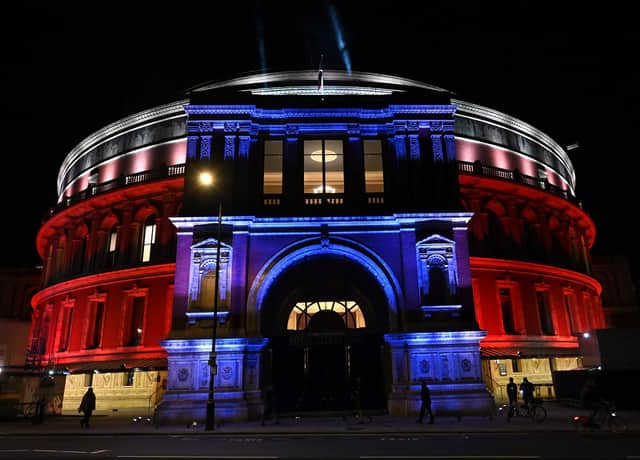Last Night of the Proms: BBC should get off its podium and let music speak for itself
and live on Freeview channel 276
For as long as anyone can remember the BBC has presented the Last Night of the Proms in two parts.
The first part is on BBC 2, presumably on the basis that the great unwashed will not be able to cope with Wagner, Verdi and that other foreign stuff.
Advertisement
Hide AdAdvertisement
Hide AdThe second part is the jingoistic singalong that is perfect for the plebs so that is on BBC 1, although many will recall the recent failed attempt to dump Rule Britannia as…er, well… too British.
Last night’s effort somewhat misfired as the BBC audience chasing bosses were so busy promoting Strictly Come Dancing that the handover from BBC 2 to BBC 1 was fumbled and the performance of the second half was already underway when the switch happened.
Generally the BBC seems more concerned with sermonising to its licence payers instead of letting music take pride of place.
The cellist Sheku Kaneh-Mason was lauded by the Prom presenters as a black man breaking into the white dominated classical music sector. Sheku, born in Nottingham to successful parents, reached the heights of musicianship through his own dedication and hard work. The BBC demeans Sheku and his brilliant family by using him for virtue signalling.
Advertisement
Hide AdAdvertisement
Hide AdIt is clear that the Proms audience - overwhelmingly white - are representative of the majority of tolerant British people who are colour blind when either listening to music or judging individuals in all walks of life from football to politics. They do so on merit.
The only prejudice is the BBC’s assumption to the contrary. It is high time it abandoned its snobbery that looks down on viewers as needing moral guidance.
Coupled with this is the BBC’s arrogant assumption that the mass of its licence fee payers are ill-educated tabloid readers not worthy of being exposed to the serious arts. Hence its bizarre mid event channel switch.
This BBC patronising, dumbing down, ratings chasing mentality provides the main argument for abolition of taxpayer support. The commercial channels will happily produce Strictly and even one may be sufficiently lacking in judgement to employ Gary Lineker.
Advertisement
Hide AdAdvertisement
Hide AdThe Promenaders, for a start, are fighting back against the BBC’s preference to sermonise on diversity and other political matters instead of prioritising the levelling up of arts and culture.
The largest cheers at the Last Night were for the BBC Singers (combined salaries equivalent to Lineker’s annual BBC fee). Surely even the BBC time-serving wonks must realise that maybe cutting some of its rubbish cookery and quiz shows would better serve the nation than the disbandment of the BBC Singers.
As for its previous attempt at cancelling Rule Britannia, then the Last Night audience had the last word.
The tradition is the exuberant expression of musical joy, not one of prejudice or dominance, otherwise the multitude of flags - of the EU in particular - and of former colonies and the Republic of Ireland, would not have been flying high in the Albert Hall.
Advertisement
Hide AdAdvertisement
Hide Ad

The arts and culture are seriously neglected in the UK despite the immense and diverse talent up and down the country - mostly ignored by the BBC, other national broadcasters and nearly all politicians.
Nicola Benedetti, the chairman of the Edinburgh Festival and like Sheku another home grown musical colossus, is one recent crusader for greater investment in musical education. Other European nations do it better. In France every child has a legal right to learn a musical instrument.
Perhaps it is time for the BBC to get down from its self-righteous podium, abandon its political agenda and transform itself into the British Cultural Corporation, funding the arts and creative talent and making programmes the commercial market does not provide.
In the meantime it should leave the virtue signalling on the cutting room floor and let the music - and its audience - speak for itself.
Comment Guidelines
National World encourages reader discussion on our stories. User feedback, insights and back-and-forth exchanges add a rich layer of context to reporting. Please review our Community Guidelines before commenting.